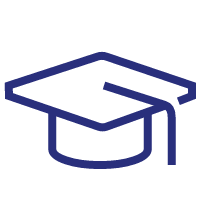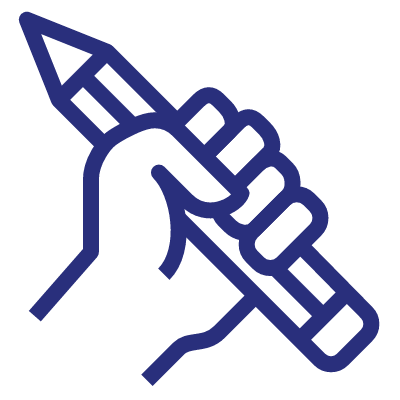Learn how to maximize the use of mobile devices, make the most of the latest online tools for collaboration and communications, and fully utilize today's Internet capabilities with DISCOVERING COMPUTERS ESSENTIALS ©2016. This book clearly shows you how technology skills can assist you in gaining employment or advancing your career. Discover and practice using the most recent developments in computer tools and technology with this book's wide variety of practice and reinforcement opportunities. Each chapter begins with a self-assessment that enables you to target your study to learn more in less time! DISCOVERING COMPUTERS offers the content you need to succeed in a way that ensures your understanding and success.
- Structure and Organization Of Book's Content Improves Retention and Understanding. The authors have used their teaching experience and technical expertise to present the information in a way that encourages students to retain the material and promotes transference of knowledge.
- Chapters Are Structured To Highlight Topics Most Important For Success. All material is formatted to enhance the reader's learning experience and highlight key information students need to know at home, at school, and at work.
- End-Of-Chapter Assignments Provide Critical Hands-On Practice In Using Skills. All assignments have been carefully designed to help students refine the skills that are most important for their success in your course and in their future work.
- Unifying Themes Connect Feature Boxes, Margin Notes And Digital Resources. Interesting in-chapter feature boxes, highlights in the margins and accompanying digital content reinforces each chapter's theme and effectively directs readers' attention to practical applications.
- "Broaden Your Knowledge" Learning Tools Emphasize Technology Know-How. Mini Features, How To boxes, Secure IT boxes, BTW elements, and High-Tech Talk articles keep readers informed and working with the latest technology developments.
- Robust Learning Features Refine Critical Thinking Skills. Consider This boxes, Ethics and Issues boxes, and questions posed throughout the book challenge students to critically evaluate and determine solutions for contemporary technology dilemmas.
- The Latest Technology Developments Keep Your Course As Current As Possible. Internet Research elements, Technology @Work boxes, Technology Innovators, additional online content as well as Facebook posts/Twitter tweets ensure your students are assimilating the most up-to-date information.
- Self-Assessment Tools Help Students Evaluate Their Comprehension And Progress. Chapter Objectives, Now You Know boxes, Quiz Yourself Online tools, Chapter Study Guides, Flash Cards, and Practice Tests all help ensure readers fully understand each chapter's material.
- Author-Developed Online Resources Expand Upon The In-Book Chapter Topics. You and your students have the flexibility to delve into more detail on subjects of particular interest to you as a wealth of online material expands on chapter topics with today's most current technical information.
- Author-Directed Animations and Interactive Figures Clarify Concepts For Readers. Intentional and effective online visuals clearly illustrate concepts for today's visually oriented learners.
- End-Of-Chapter Student Assignments Offer An Exceptional Learning Solution. Readers gain important hands-on practice in applying the technological concepts they're just learned.
- Helpful Introductory Chapter Details How Students Can Succeed In Your Course. Useful learning and study tips and pointers help learners overcome possible challenges and avoid common mistakes.
- Technology Timeline Highlights Milestones In Technology History. Readers gain an appreciation of the technological advancements that have established the groundwork for today's developments.
- Integrated Approach To Cloud Computing and Search Skills Appears Throughout The Text. Students learn to master these important skills and maximize the resources available to them in a variety of technological contexts.
- Valuable Information on Careers Introduces Career Options and Tips For The Successful Job Search. Readers learn a variety of approaches, including how to most effectively use tools, such as social media, to jumpstart their technology careers.
- Online Resources That Correspond With The Book Keep Your Course as Current as Possible. Updates directly from the book's author and additional detailed topical content reflect the latest technological developments.
- Includes Mindtap which is an interactive, customizable and complete learning solution. It includes a MindTap Reader and a library of learning apps (e.g., CNOW, Aplia, ReadSpeaker, Merriam-Webster dictionary, MyContent, RSS Feed, Kaltura, Progress app, etc.).
Introductory Chapter: Succeeding In This Course: Tips and Pointers.
1. Introducing Today's Technologies: Computers, Devices, and the Web.
2. Connecting And Communicating Online: The Internet, Websites, and Media.
3. Computers And Mobile Devices: Evaluating Options for Home and Work.
4. Programs And Apps: Productivity, Graphics, Security, and Other Tools.
5. Digital Security, Ethics, And Privacy: Threats, Issues, and Defenses.
Feature: Technology Timeline.
6. Computing Components: Processors, Memory, the Cloud, and More.
7. Input And Output: Extending Capabilities of Computers and Mobile Devices.
8. Digital Storage: Preserving Content Locally and in the Cloud.
9. Operating Systems: Managing, Coordinating, and Monitoring Resources.
10. Communicating Digital Content: Wired and Wireless Networks and Devices.
11. Building Solutions: Database, System, and Application Development Tools.
12. Working In The Enterprise: Systems, Certifications, and Careers.
Appendix A: Acronym Reference.
Appendix B: Troubleshooting Computer and Mobile Device Problems.
Misty E. Vermaat, Purdue University Calumet
Misty E. Vermaat has more than 25 years of experience in the field of computer and information technology. In addition to consulting in the field, she was an Associate Professor at Purdue University Calumet, teaching or developing Microsoft® Office, computer concepts, database management, systems analysis and design, and programming courses. Since 1990, Ms. Vermaat has led the development of the Shelly Cashman Series and has written or co-authored numerous Series textbooks, including many editions of DISCOVERING COMPUTERS, DISCOVERING COMPUTERS FUNDAMENTALS, and Microsoft® Word books.
Susan L. Sebok, South Suburban College
Susan L. Sebok is a retired professor at South Suburban College in South Holland, Illinois. She is also a licensed attorney. Ms. Sebok has co-authored several successful textbooks for the leading Shelly Cashman Series, including multiple versions of Microsoft® PowerPoint® and DISCOVERING COMPUTERS.
Steven M. Freund, University of Central Florida
Steven M. Freund attended the University of Central Florida and serves as a leader instructor of various Microsoft® Office, computer concepts, programming, and Internet technology courses throughout Central Florida. An integral author for the successful Shelly Cashman Series since 2001, he has presented at the annual customer conference, the Shelly Cashman Series Institute, as well as other customer events. Mr. Freund has co-authored multiple editions of DISCOVERING COMPUTERS, Mozilla Firefox, Windows® Internet Explorer, Windows®, Office, and Dreamweaver books. He has also written numerous successful instructor supplements.
Jennifer T. Campbell
In addition to co-authoring DISCOVERING COMPUTERS, Jennifer T. Campbell has written several other leading technology texts, including DISCOVERING THE INTERNET, WEB DESIGN: INTRODUCTORY, MICROSOFT® EXPRESSION WEB INTRODUCTORY CONCEPTS AND TECHNIQUES, COMPUTER LITERACY BASICS: MICROSOFT® OFFICE 2007 COMPANION, and MICROSOFT® OFFICE QUICK REFERENCE POCKET GUIDE. Ms. Campbell has served integral roles in computer textbook publishing as an editor, author, and marketing manager. She holds a B.A. in English from The College of William and Mary.
Mark Frydenberg, Bentley University
Mark Frydenberg is a Senior Lecturer of Computer Information Systems at Bentley University in Waltham, Massachusetts. He also serves as the Director of the university’s CIS Learning and Technology Sandbox, a social learning space where students interact with technology and each other. Professor Frydenberg teaches courses in IT concepts, web development, and technology trends. His research focuses on flipped and collaborative learning and pedagogies for engaging students with technology. Professor Frydenberg frequently presents on teaching and learning with new technologies at conferences and training events throughout the US and Europe. He has also authored WEB 2.0 CONCEPTS AND APPLICATIONS, one of the many successful texts in the popular Shelly Cashman Series.



















